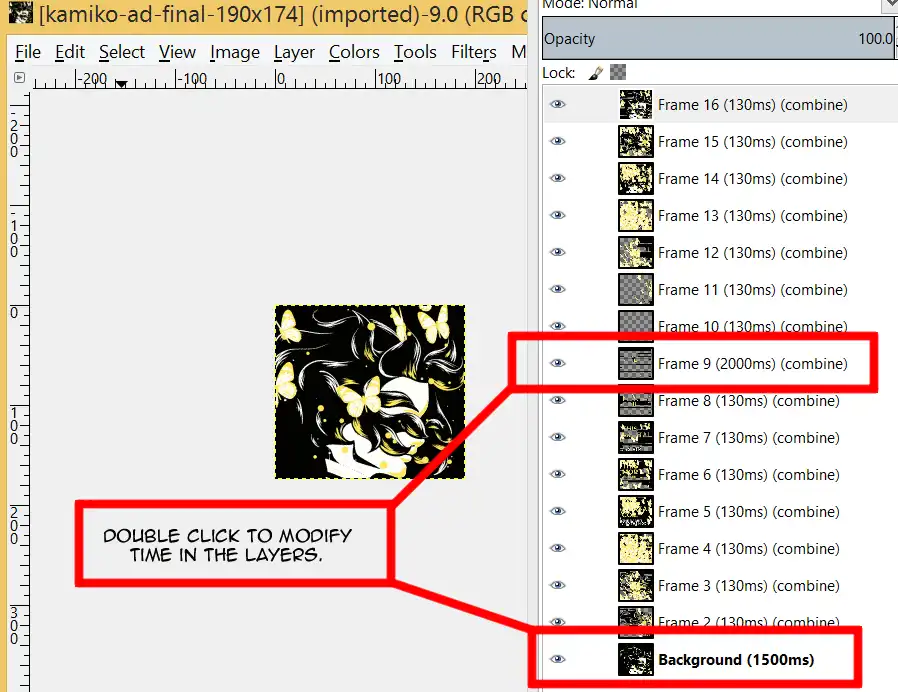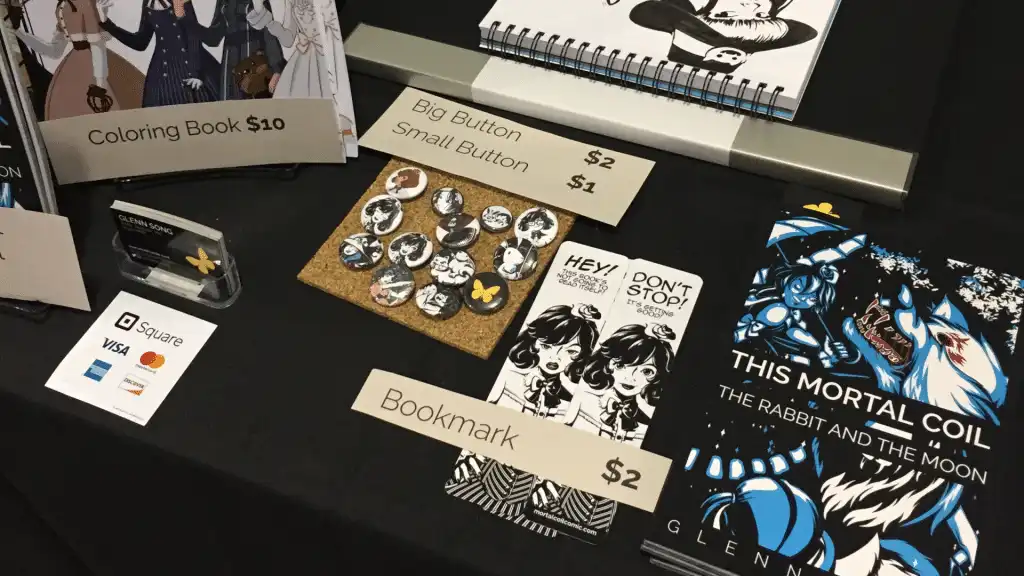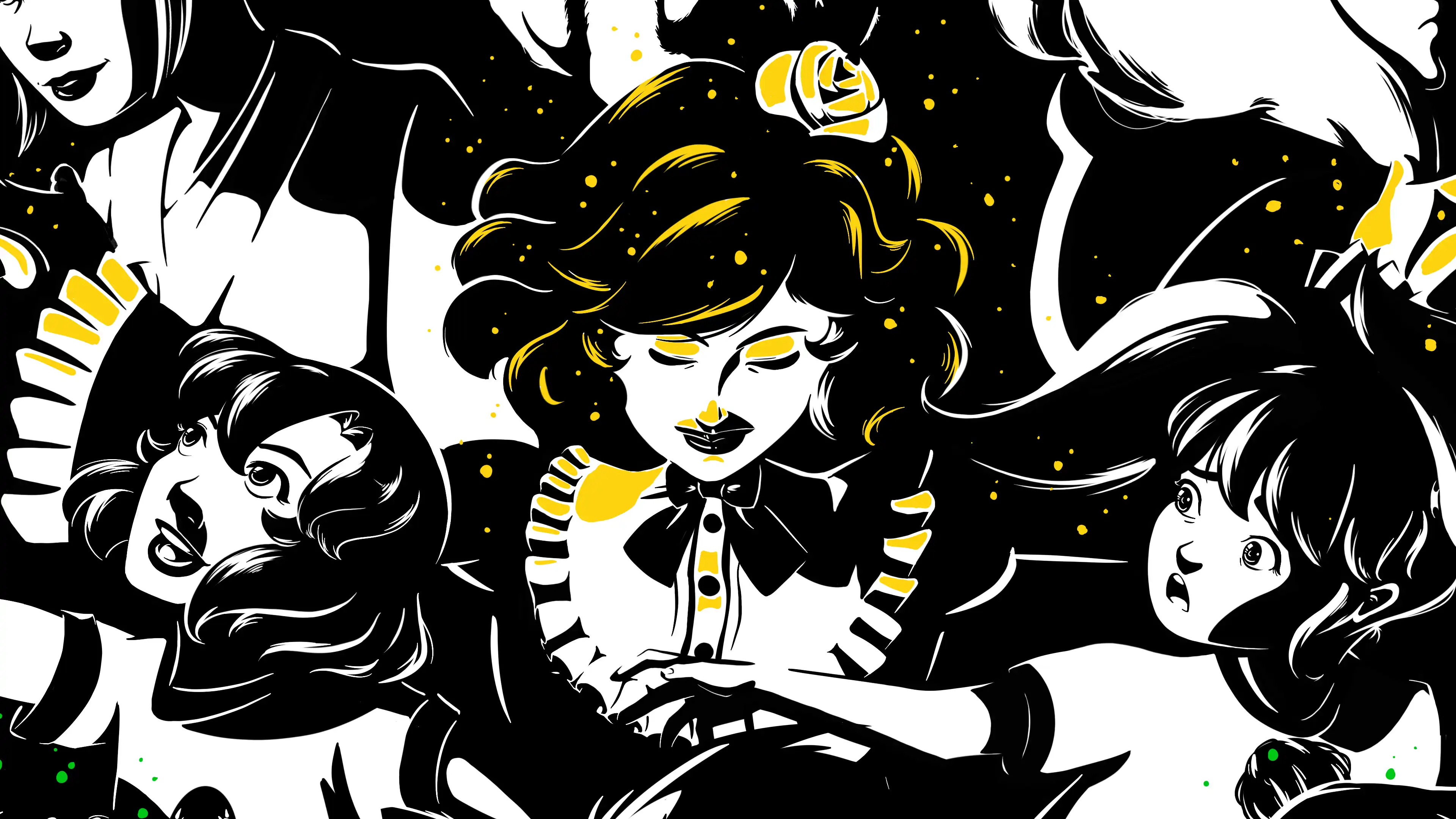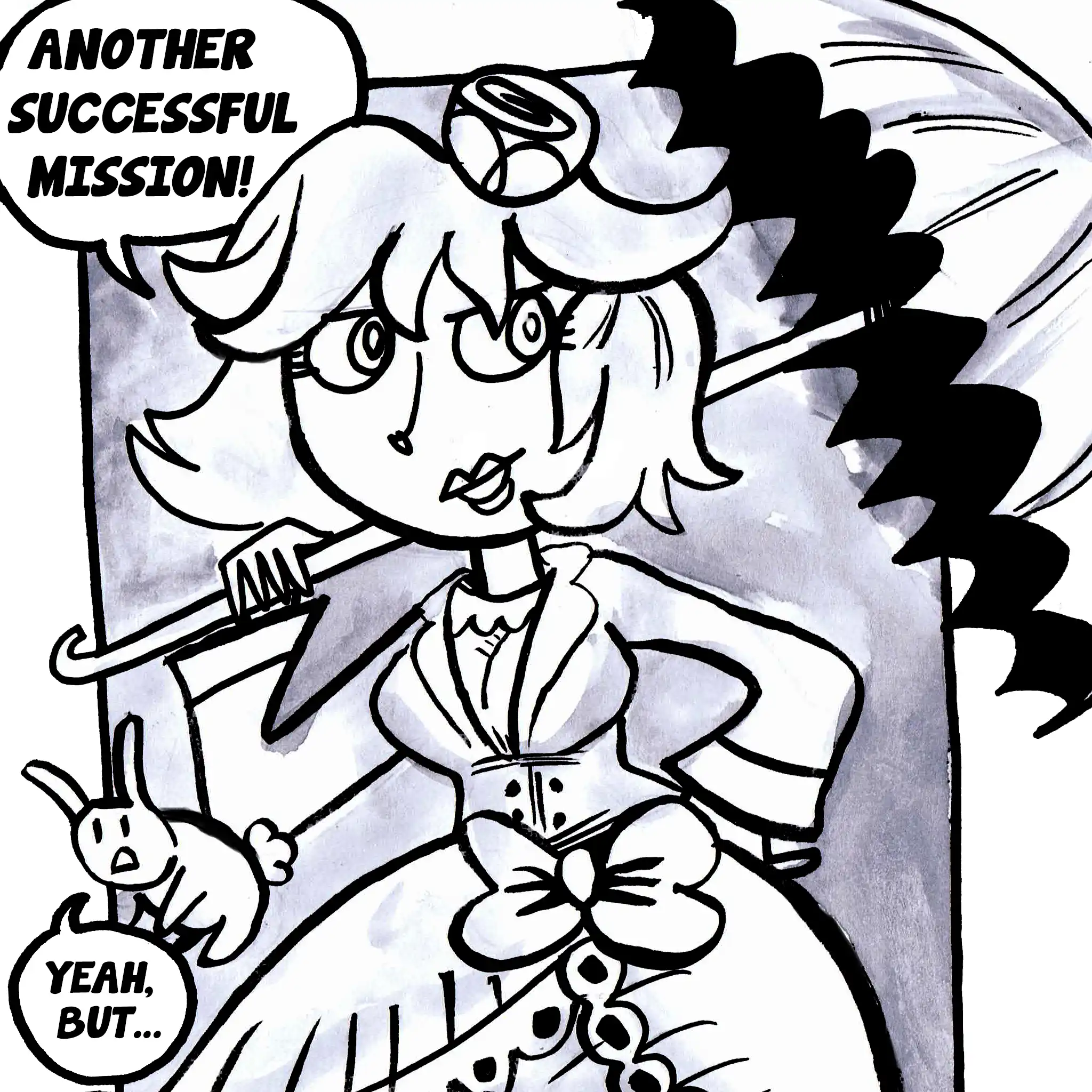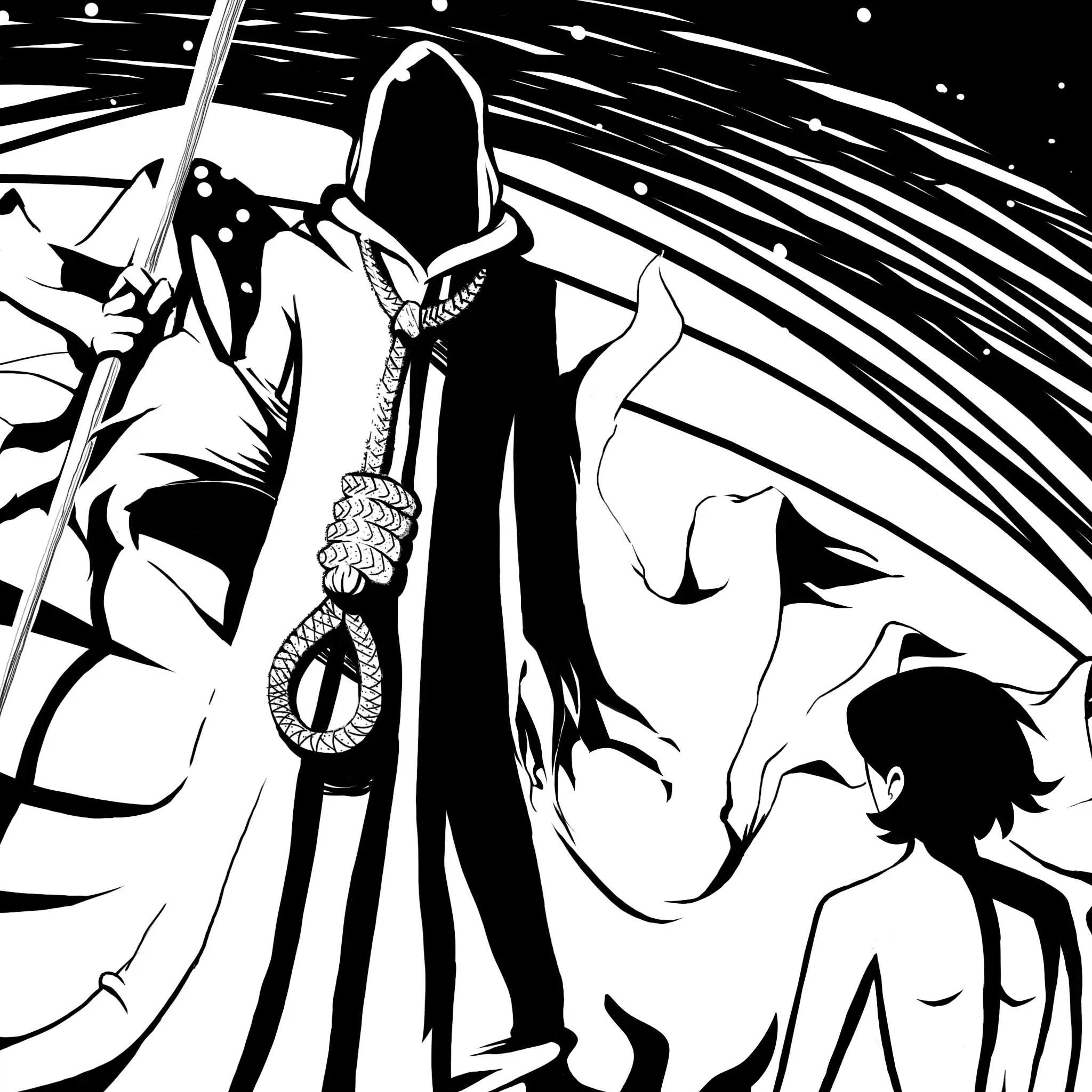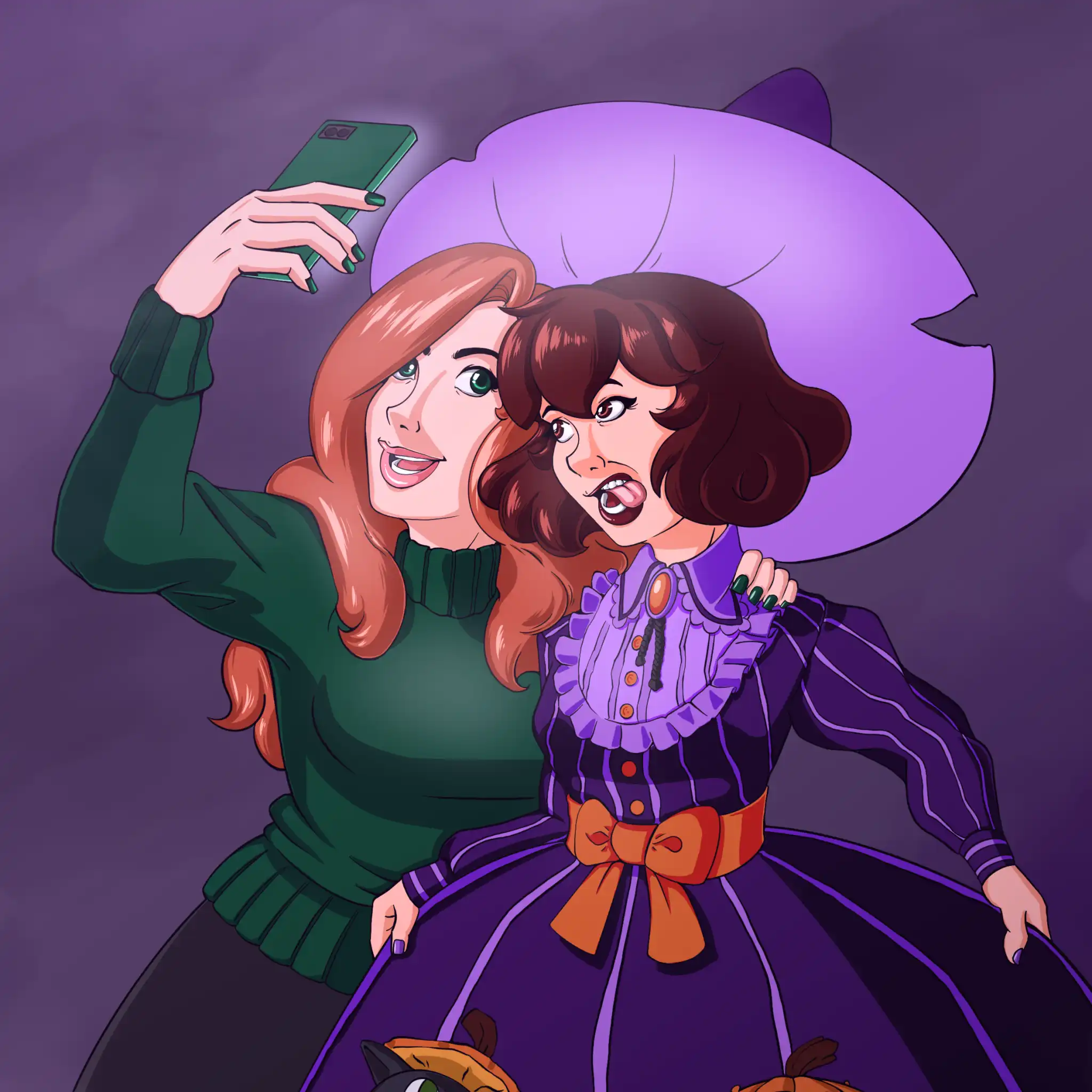10 Things I Learned From Making Webcomics
Jul 13, 2016, 1:00:26 PM
10 Things I Learned from Making Webcomics Featured Image | 10 Lessons Blog Post
You're ready to make your webcomic. You know how to do it, what it's about, but are you ready for your long creative journey? What do you get out of pouring your time and soul into your project? Are you still hesitant? Well, whatever the case, I have for you the 10 Things I Learned from Making Webcomics. Click to read on.
Perfect is the Enemy of the Good | 10 Lessons Blog Post
1. "Perfect is the Enemy of the Good."
Yes, strive for perfection, but your first page won't be perfect. Your first page will be a start and every page you make will be more perfect than the last. The Rabbit and the Moon was also meant to be that: a story that let me hone my skills artistically and otherwise.
Check out the beginning of the Rabbit and the Moon and then the later pages. The shading was off. The dialogue was horrible. It was the best I could do at the time, and each time I did another page it got better.
The same goes for everything else. The website wasn't stellar but evolved over time to include the sections you'd find on a webcomic site -- cast, archive, blog, etc. The website became responsive on mobile devices and even slightly faster than it was.
I wasn't good at marketing the comic, but over the years I learned where to purchase ads, how to create advertisements, and how to handle Twitter and Instagram, and I'm not perfect at any of it. I knew I had to do it and allowed myself to start somewhere. Anywhere. Create an ad, write a blog post. It can be rough around the edges. Whatever you do, make sure you publish your work. As Seth Godin might say, "always be shipping."
And get better as you go.
We live in a Web 2.0 age (or beyond at this point). Your past failures are buried under a mountain of content, and as long as you keep producing you'll produce better blog posts, comics, ads. You may never attain perfection, but you'll come closer to it every time.
I also believe Godin said "Perfect is the Enemy of the Good." And if you're looking for a good inspirational blog to read, read his.
Failure | 10 Lessons Blog Post
2. Learn from Failure
When I first started my webcomic, I did it for 24 Hour Comic Day. The idea is that you make a comic in one day.
How hard could it be?
I storyboarded out some ideas. Added some dialogue. Penciled the pages, inked it. Viola.
I didn't get past a few hours before I realized I was dead in the water. Where was this story going? Was I really going to devote all this time per page without an idea of how it would progress? It was foolhardy and dumb.
I needed a plan of attack, and I decided that it was worth trying to build something. 24 Hour Comic Day was a failure for me, but from it, I started the project of this webcomic with a better plan. Sometimes you need to fail to know what you have to do next, and at least you'll have a better idea of what that step is since you know what didn't work.
It's not the only time I failed.
When I look back at some of my art, I see bad poses, bad expressions. I could, and I get the urge to go back and fix everything, but where does it end?
Once again, perfect is the enemy of the good.
If I address each of those little failures, it eats away my time to make new pages.
Let it go. Move past and get it right next time.
Write and Rewrite | 10 Lessons Blog Post
3. Write and Rewrite
Rewriting had a profound impact one that I had never considered. This only works if you have your story scripted to some degree -- I had written the entire script to the Rabbit and the Moon.
When I initially storyboarded the comic it came out to 210 pages. My final comic is 127. If I kept to my original vision, I'd still be working on it today, and I don't think I'd be better off because of it.
Part way through production my morale for the project began to drop. The task was insurmountable. There were tons of pages to make. I knew the time-estimate to create a page was 15-20 hours and I knew I could maybe do 2-4 hours a night if I wanted too.
The way I saw it, there were two ways to do the work:
- Draw every page of it until complete
- Cut out chapters and scenes I didn't need. Condense other pages.
I choose option two. As they say in creative writing: Kill your darlings. Murder your babies.
I know you like that line in the script, but do you need it? Does it move things forward? Does it serve a purpose? Does it warrant a drawing?
If I cut a drawing I save 2-3 hours to pencil and render it. That's a night's worth. One day less.
After I started producing pages, I knew that 32 pages of comic was 6 months of time (roughly).
I went back to my script and storyboards and cut. I chopped 80 pages out. Part of it was condensing chapters into shorter ones, and yes, I omitted chapters entirely and rewrote some of the later acts of the story to make it work again.
It's not perfect, but I do feel that the resulting story is tighter and it saved me over a year's worth of time.
Oh... but I couldn't kill them all. One of the scenes I debated cutting was "The Ferrywoman." Originally it was a long conversation between Kamiko and The Ferrywoman. It was infodumping and exposition. It was 17 pages by my storyboards. If I cut it that's 3-4 months of work I'm saving, but I liked the character of the Ferrywoman since she's apart of the larger mythos of This Mortal Coil and I wanted that element in the story. I reworked the dialogue. Shortened it down to ten pages and packed it full of information to move the story forward visually and to allow them to chit-chat and move ideas forward that way. I compromised on that scene, but I struggled with it for months.
The moral here: rewrite, cut to save time. For a comic, I think it has a profound impact, because you've got to draw the pages and that's way more time than simply writing a story, especially when you're time-strapped. But, if a scene or idea keeps rearing it's head, then it's worth reworking it.
Learn New Things | 10 Lessons Blog Post
4. Be Willing to Learn New Things
I learned a lot of things doing my project, and you will too if you see your project in that light.
My day job was doing software engineering and there were other things I wanted to try my hand at and This Mortal Coil allowed me to wear those hats.
Over the years I've learned:
- web design
- web programming
- typography
- social media engagement
- 3D modeling
- rigging
- animation
- rendering
- storyboarding
- making Youtube videos
- and how to use a lot of different tools.
I didn't plan that, but those where skills I needed to learn so I could build my comic and her readership.
It takes time though.
Learning Blender allowed me to build 3D mannequins and pose them to make more dynamic scenes -- ones that my brain couldn't possibly put together over a blank canvas.
Learning web design and coding let me own my own website. I don't have to rely on Tapastic, Inkblazers (now defunct) or anybody else to self-publish my work. I don't have to let those sites hold me back.
I never used social media before This Mortal Coil. I learned Twitter, FB, Instagram. I'm better at using these platforms. Maybe it won't help me this time, but all of these skills I started to pick up are long term investments in myself.
Long Term Investment | 10 Lessons Blog Post
5. Investing in Yourself
Remember everything you learn and do is a long term investment. All the knowledge you learn could be usable somewhere else. It could lead to new opportunities and open new doors. It may not pay off right this moment, but it will later.
The skills I learned for This Mortal Coil eventually bled into my video game startup Prisma Wave Studios -- and we're still learning and trying things to make it in the realm of indie games.
More directly, the website tech I built for This Mortal Coil is the one I use for Prisma Wave Studios. It let us setup a website quickly, so not a bad investment.
If I didn't learn Blender or double-down in building web technology, I couldn't have made The Shrine, which could be a potentially different way of telling stories for my comic. It opens a new form of expression to me that I wouldn't have thought of back in 2010 or 2012.
Also, don't forget that all the things you make are assets. Yes, they're not stocks, bonds, or funds, but they are assets. You can re-use your comic art in blog posts. You can make marketing material out of them. You can build a portfolio from it. You can share the sketches and show your work-in-progress. My website is an asset and the Shrine too. You own all that stuff and don't need to ask anyone for permission to use it. And yeah, maybe one day you can sell it too, then it really becomes a valuable asset.
Do A Little Every Night | 10 Lessons Blog Post
6. Do A Little Every Night
I worked a full time job.
I hung out with friends.
I watched a lot of anime/TV.
Played games.
I moved house twice.
...And still made a 127 page webcomic in the past 4 years. It took me 3,617 hours over 886 days. Over 4 years that's still less than 10% of my time.
What's your excuse, again?
Okay, okay. Yeah, I'm single. And enjoying it. I can do as I please.
I always thought: If it's important enough to you, you'll make the time. But, I realize some folks have a family, a kid and those things require your time and are more important. Even if you can take care of your family/kids first and have time for yourself later, you may not have the will to do something on your own. We can only do so much in a day after all.
If you're fine with the idea of a side project as a long term investment in yourself, then do what you can. Even a little bit of time snapped from here or there can push you towards that goal. Find new ways of working. If you're writing a story, try tapping it out on your smartphone. Sketch in a moleskin. Adapt and keep moving forward however you can.
If you want hours though: I forwent sleep. I don't advise you to do the same, but if you're looking to find hours, you know, you can sleep when you're dead, right? :)
If You Build It | 10 Lessons Blog Post
7. If You Build It, They Won't Come
It's not like the Kevin Costner film, Field of Dreams. (You saw that movie, right?)
Do a google search for webcomics and look at the sheer amount of them. Go to TopWebComics, The Belfry, Tapastic, Webtoons, Hiveworks, The Duck, Comic Fury, and be agog at the shear amount of art, story, and stuff people have created.
Your thing will drop right into that sea.
And be lost.
That's a sore lesson to learn, but building it isn't enough. You gotta evangelize it yourself. Buy advertisements using Project Wonderful and TopWebComics. Join online communities/forums. Do fanart for others. Strike up conversations. Join #WebComicChat on Twitter. Get heard.
In the (Silicon Valley) startup biz, it's called finding traction. How do you make your product go viral and get daily active users (or readers in our case), and eventually turn it into a viable business.
I have no formula for you. It's different for everyone, and I'm still searching for my own way forward.
I will mention this though: your idea, your comic, is not some kind of amazing secret. Don't treat it like it is.
I know some folks hold onto that sacred idea of only showing a perfect final project, but well, you know what I said about that...
Start early and show everyone what you're making. Post rough sketches. Character designs. Setting designs. Show us what you're learning. Show us your journey.
It takes a little bit of time to do social media, but it's a small time investment. It can't hurt to try. Nobody is coming to steal your ideas away from you.
We live in an age where we are literally giving away our work for free, and it's still hard to get eyes on our work, but take the time and engage with readers and build your community. It's an investment (right?) and one that I assume will take a long time.
Morale Loss | 10 Lessons Blog Post
8. You'll Lose Morale
Yeah, you will.
There will be days you wonder:
Why bother?
Nobody supports me.
Nobody cares.
Should I still care?
Is this worth my time?
That's a tough question to answer.
When I felt low, a good walk or doing something else helped put things in perspective. I always came around to the most important thing: I was making this comic for myself. It's my creative expression. I should make the art as good as I can. I should put my all into it, because nobody else is calling the shots.
What's the most important thing to your comic or creative work?
Hold onto that thing because it will be a bumpy ride.
If you can't continue your webcomic due to low morale, take a hiatus. Tell your fans you're taking time away. Go be you for a while. You're your own boss after all, and making something new and being creative is hard mental work.
You Might Have to Go It Alone | 10 Lessons Blog Post
9. You Might Have to Go It Alone
In the end, it may just be you. Your friends and family may not give a rats butt about your comic. They may not support you.
So...
Is it something you're still dead set on?
If so, it's a long road and you maybe on it by yourself. You'll find new friends (readers, creators), but ultimately you're the one pushing that pencil and publishing pages.
It can be difficult in it's own way.
But, if you want to see your thing exist, then you may have to create it through sheer force of will and tell us all about it.
A Thing for Myself | 10 Lessons Blog Post
10. A Thing for Myself
What do you define yourself by?
For me, this comic is one of the things I define myself by.
I was a desk jockey, a code monkey for a big company. Sure, it was fun; I made a part of a video game, but in the end it wasn't my own thing. It was someone else's. My entire life revolved around a thing that someone else owned. Every quarter at the company there were layoffs and I survived through 20-plus of them.
Is that all there is?
Do I want to be defined by the fate of this company?
If it changes on a whim and casts me to the void, should I just accept that I am only a cog in their machine?
What happens after that? Am I nobody just looking for another company to host me until they too discard me or I grow old and weary?
I always wanted to do something with my art and writing.
Call it a hobby. A side hustle. Or moonlighting.
So much of this world is owned by someone else.
So much of your life is owed to someone else.
I wanted to own a piece of it to so I made this thing.
At my place of work, in March 2015, I did get laid off finally, but by then I had This Mortal Coil. So even if nothing happened, I had this thing. I could wake up tomorrow and work on this thing and build it (but then we started an indie game studio, that's another story for another time).
Sure my comic could be an albatross, but it's my albatross and not someone else's. I can decide my own fate with this. It's my time and I can choose.
How about you?
READ MORE!
GIF Compression Techniques
This article discusses various animated GIF compression techniques I came across while creating and publishing my animations for the current�…
This Mortal Coil at the Alternate Press Expo 2017
Over the weekend of September 23-24th I flew up to San Jose to table at the Alternate Press Expo with my friend Yang, who is a fellow game…
